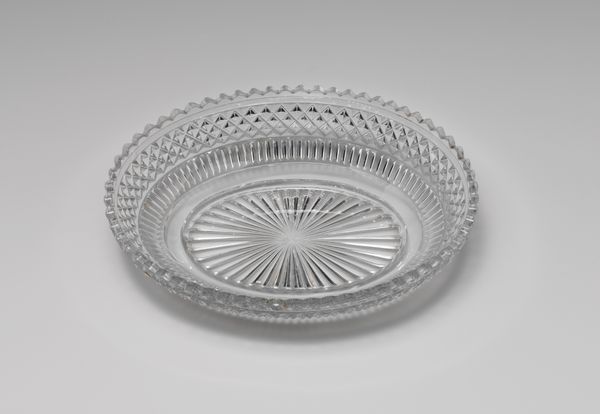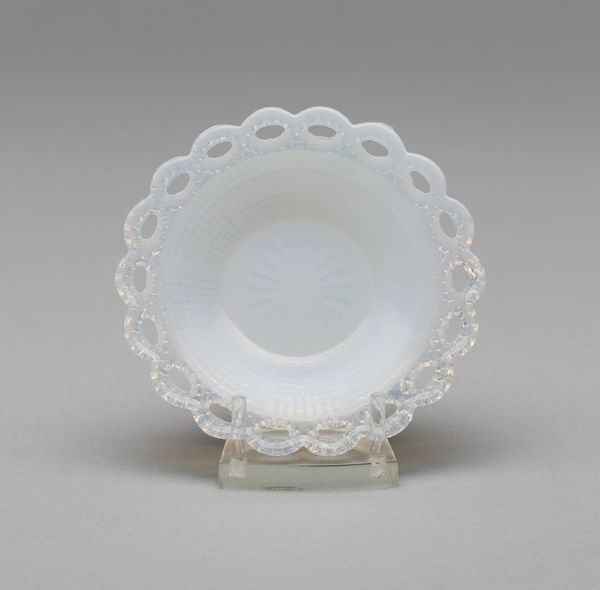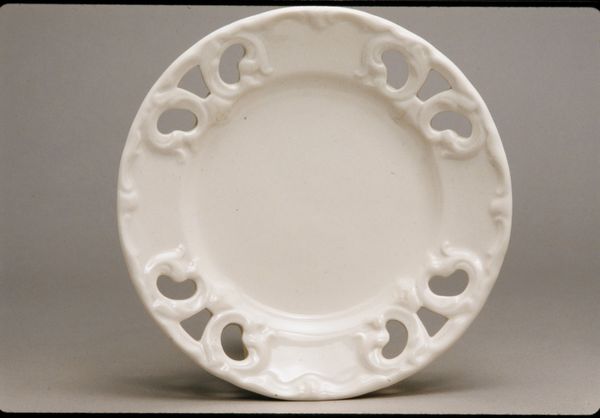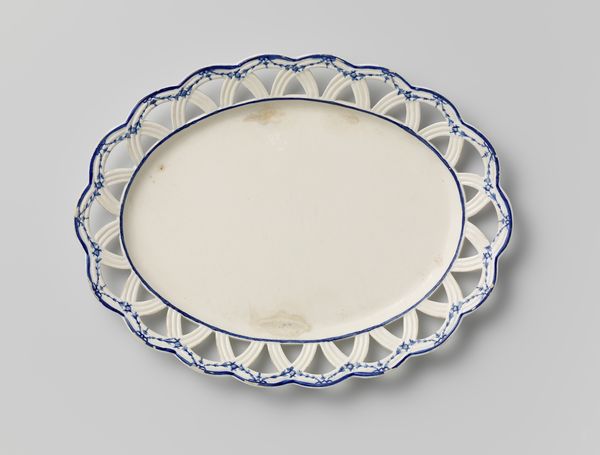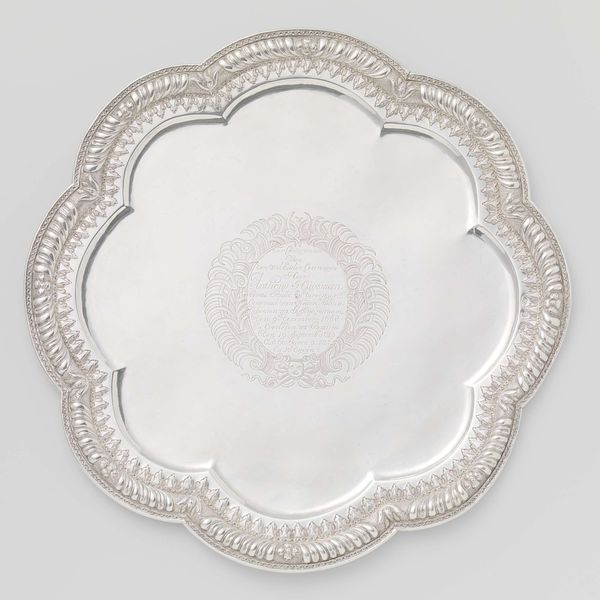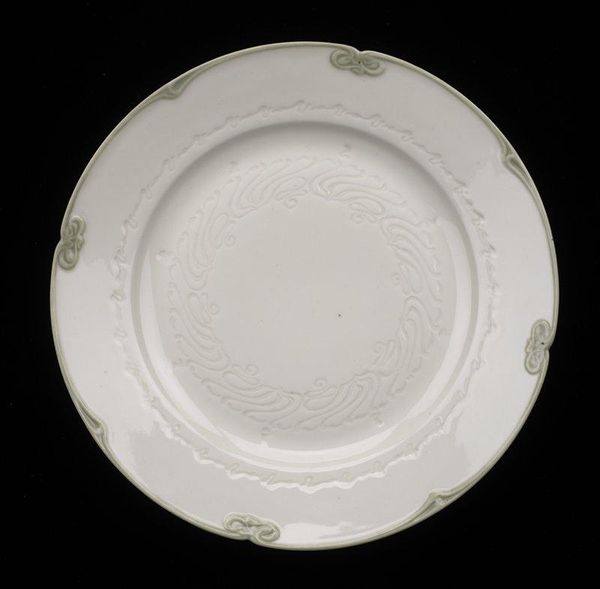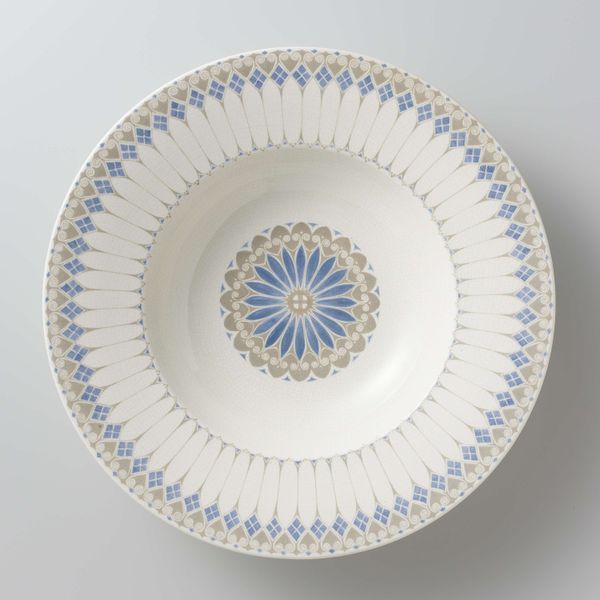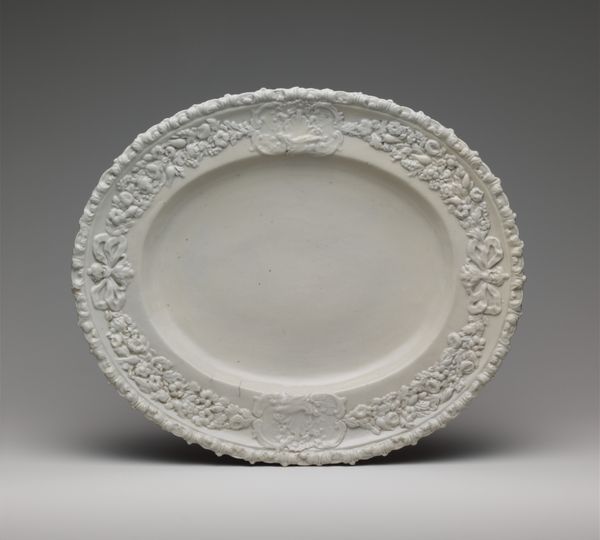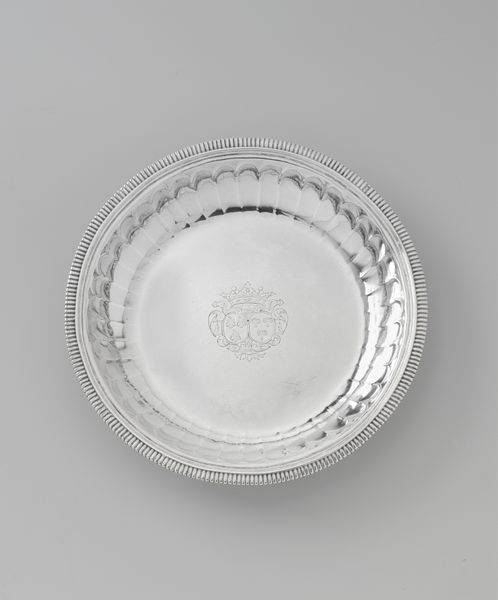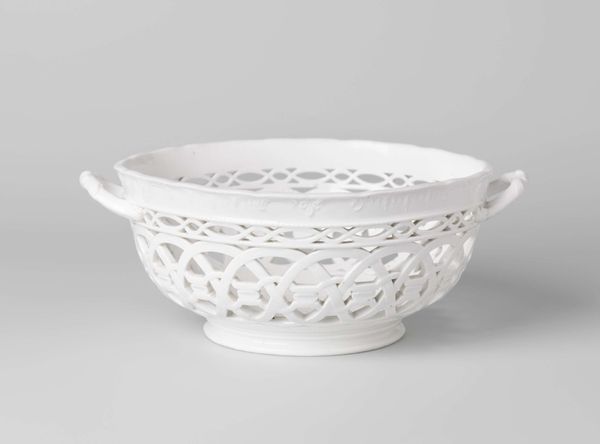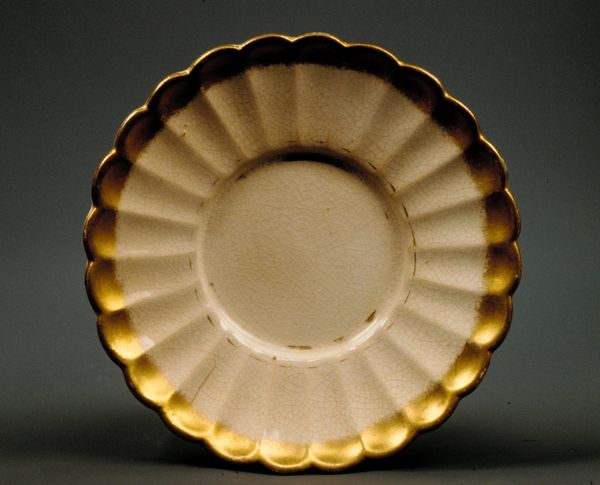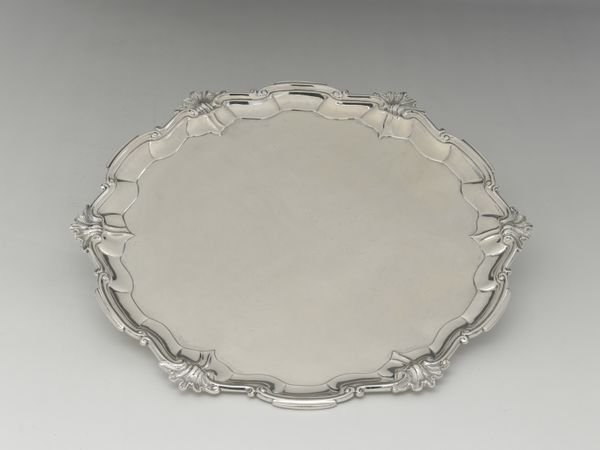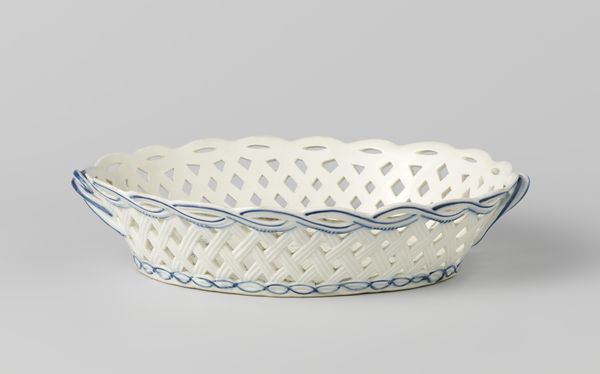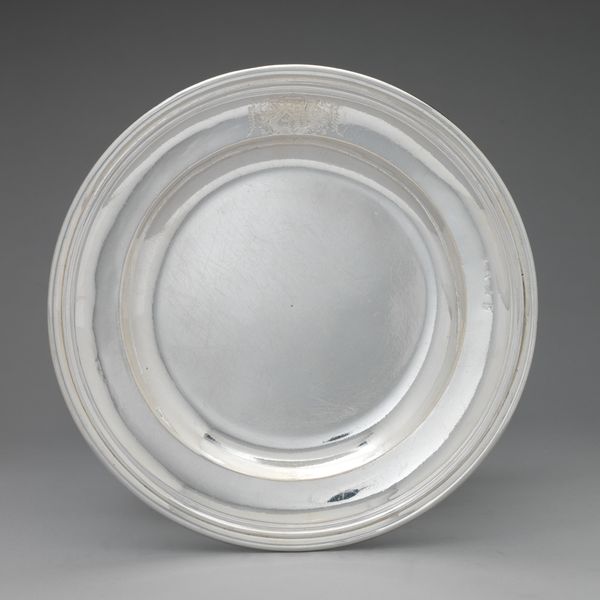
Dimensions: Overall: 10 7/8 × 9 5/8 in. (27.6 × 24.4 cm)
Copyright: Public Domain
This creamware dish was made by Josiah Wedgwood and Sons. It beautifully shows how industrial processes can mimic handcraft. Wedgwood perfected ceramic production on a mass scale. This involved a division of labor, with each worker responsible for a small step in the process. Here, a refined, white earthenware body is cast in a mold to produce the basket-weave pattern. It would have taken considerable skill to get the liquid clay into all the nooks and crannies of this mold. The pierced rim is made using a separate mold. The smooth, even surface is the result of firing and glazing. The factory system allowed Wedgwood to produce large quantities of ware that looked hand-made. By integrating manufacturing with design and marketing, Wedgwood blurred the lines between art, craft, and industry, and in the process, made a fortune. Examining pieces like this allows us to reflect on the labor and industrial strategies that underpin their creation.
Comments
No comments
Be the first to comment and join the conversation on the ultimate creative platform.
